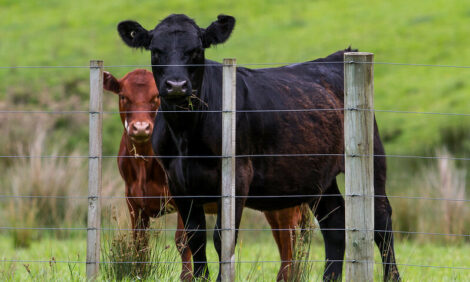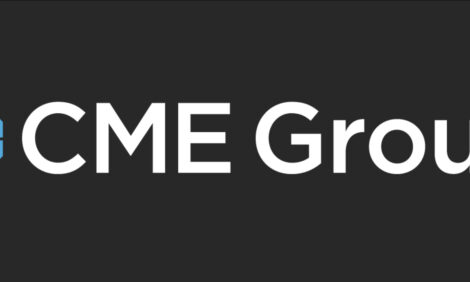



R-Calf Loses Its COOL With American Meat Association
WASHINGTON – R-CALF USA has launched another attack on what it calls "false and misleading comments" by the American Meat Association (AMI) regarding mandatory country-of-origin labeling (COOL).In a second letter to Rep. Rosa DeLauro, D-Conn., and Sen. Herb Kohl, D-Wis., sent yesterday, R-CALF USA President/Region VI Director Max Thornsberry said he was particularly concerned with AMI’s erroneous trade implications it mentioned in a letter to DeLauro and Kohl dated June 5, 2007. He also asked the congressional members to consider expediting the implementation of COOL.
“AMI first claimed that a country-of-origin labeling regime would not impact food safety or the integrity of food products,” Thornsberry said. “R-CALF pointed out that AMI’s claim was disproved by the origin-based food safety standard the U.S. currently applies to beef imported from Uruguay. AMI objected to R-CALF USA’s example, claiming the standard addressed issues of animal disease, not food safety.”
In Thursday’s letter to Congress, R-CALF USA stated that Congress’ Animal Health Protection Act mandates the U.S. Department of Agriculture (USDA) to prevent animal diseases for the express purpose of protecting both animal and human health. AMI’s argument that the prevention of animal diseases, as is accomplished by origin-related restrictions on food imports from Uruguay, is not intrinsically tied to the protection of the nation’s animal-based food supply – hence food safety – is a contradiction of Congress’ mandate. AMI’s effort to discount the importance of disclosing the origins of food products, as provided in the 2002 COOL law, for purposes of enhancing food safety and the integrity of food products is baseless.
“AMI did not, nor could it, contest R-CALF’s example of how COOL could have benefited consumers in 2003 when beef from a Canadian cow with BSE had to be recalled from the U.S. human food chain,” Thornsberry noted. “AMI did, however, attempt to refute R-CALF’s reference to the melamine problem, which demonstrates that consumers need COOL to distinguish food products based on the particular production regime to which the food product was subjected.
“While AMI did not contest this benefit, AMI did suggest that even greater benefits would be derived from certifying the ingredients included in feed fed to domestic animals,” he pointed out. “This suggestion goes well beyond the scope of the 2002 COOL law and in no way does it distract from the fact that the 2002 COOL law as presently written would provide consumers a choice based on their knowledge of the animal feeding practices in various countries.”
AMI’s second claim was that the safety of imported meat was assured due to the requirement that foreign plants shipping product to the U.S. must meet the same requirements as are met in domestic federally inspected plants. However, a December 2005 report from the Office of Inspector General (OIG) indicates this requirement is not always enforced, and was not enforced for nearly two years in Canadian plants.
“AMI attempted to dismiss the relevance of the OIG’s findings by claiming that COOL would not cure the failure by USDA to properly enforce meat import requirements,” Thornsberry explained. “It is important to note, however, that R-CALF USA made no such claim. Instead, R-CALF concluded that COOL would afford consumers the ability to achieve an additional level of protection against breaches in food safety inspection systems in foreign countries.
“This conclusion remains valid and was uncontested by AMI because COOL would provide consumers with information as to the origin of their food, enabling them to avoid food from countries where enforcement of food safety standards is uncertain,” he asserted.
AMI’s third claim was that COOL is unnecessary because USDA’s Food Safety and Inspection System (FSIS) has had for many years mandatory COOL requirements for red meat that enters the United States. However, a 2003 General Accounting Office (GAO) report indicates that country-of-origin labels on imported meat were not being maintained all the way to the consumer.
“AMI did not contest the fact that consumers are presently deprived of country-of-origin labels on imported meat,” Thornsberry noted. “Instead, AMI raises the new argument that imported meat that undergoes further processing in the U.S. should be considered a domestic product. Congress, however, has already addressed this issue by specifying in the 2002 COOL law that only beef, lamb, and pork from animals exclusively born, raised, and slaughtered in the U.S. are eligible for the USA label.
“This requirement reflects Congress’ understanding that the act of processing a final red meat product reflects but a fraction of the time, resources, and management that went into the growth and development of the animal from which the meat was derived,” he explained. “For example, beef is derived from animals that are reared, fed, and managed by farmers and ranchers over the course of 15 months or longer, while the subsequent slaughter and processing of cattle into beef is completed in a matter of weeks, if not days.”
AMI’s fourth claim is that the 2002 COOL law is not compliant with the World Trade Organization (WTO) or the North American Free Trade Agreement (NAFTA). However, AMI provided absolutely no support for its claim. The U.S. and other WTO members retain the authority to require labeling of imported products as a condition of entry into a WTO members’ market under Article IX of GATT (General Agreement on Tariffs and Trade) 1994 and the WTO Agreement on Rules of Origin, provided certain conditions are met. AMI’s rebuttal, in which it asserts that the 2002 COOL law violates the “substantial transformation” rule of the WTO Agreement on Rules of Origin, is incorrect and misleading. Both Article IX of GATT 1994 and the WTO Agreement on Rules of Origin address conditions for entry of imported product into the United States and other WTO members’ markets.
“Nowhere in the 2002 COOL law is there any restriction against the labeling of imported products, upon their entry into the U.S. market, with the name of the country in which the product was substantially transformed, so, obviously the treatment of imported product under the 2002 COOL law is entirely consistent with U.S. trade obligations,” Thornsberry added.
AMI also falsely asserts that the 2002 COOL law “requires that a meatpacker and retailer trace the places at which the animals were born and raised, as well as the place of slaughter, and mark the meat package with all of that information.” The 2002 COOL law contains no such requirement. Instead, the 2002 COOL law allows imported products to be labeled consistent with existing trade obligations while reserving the USA label only for products exclusively derived from animals born, raised, and slaughtered in the United States.
“The COOL law also does not affect products destined for export as it only applies to products sold domestically at retail, so, U.S. meat exports, upon entry into another WTO members’ market, would continue to be subject to the same ‘substantial transformation’ rule applicable for determining the origin of imported products that enter the U.S. market,” Thornsberry added.
“It is unfortunate that AMI persists in misrepresenting the 2002 COOL law to Congress and consumers in its efforts to prevent the U.S. consumer from knowing the origins of their food purchases,” Thornberry emphasized. “R-CALF USA would welcome the opportunity to discuss how COOL can be immediately and efficiently implemented – using the same eight simplification steps USDA used in 2005 to implement the fish and shellfish provisions of the COOL law – at minimal cost to farmers and ranchers.”
TheCattleSite News Desk


